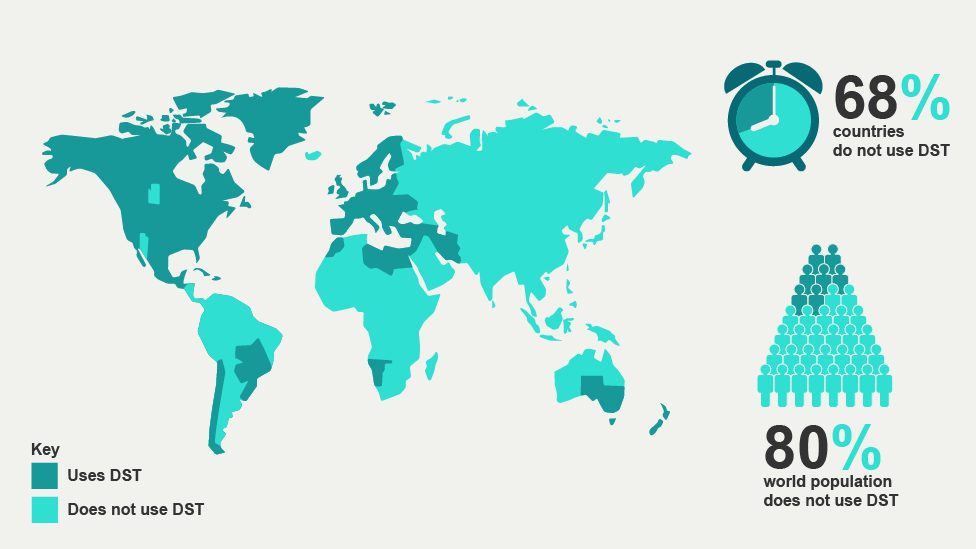C1 – Advanced
Daylight Saving Time is the practice of advancing standard time by one hour in the spring of each year and of setting it back by one hour in the fall in order to gain an extra period of daylight during the early evening. Many countries observe this change.
Let’s try to know more about its history and significance. Watch the videos and listen to the audio clips with the transcript.
What is daylight saving time?
Every year billions of us around the world observe the familiar ritual of winding our clocks forward in the spring and turning them back again in the autumn.
To the joy of some and the annoyance of others, this biannual time-tampering first steals 60 minutes of our sleep, then gives us all an ‘extra’ hour in bed. Of course, in reality we are neither losing nor gaining time. By shifting an hour of sunlight during the summer months we’re merely making better use of the daylight temporarily available to us in the evenings.
There are many countries worldwide that do not observe daylight saving time (DST) – and in those that do it has had a somewhat chequered and quirky history. Are those of us who meddle with our clocks making time or killing time?
In the UK we observe Greenwich Mean Time (GMT) in the winter months, and advance an hour during British Summer Time (BST). From time to time Parliament has debated the idea of adopting BST throughout the year, but a permanent change is yet to happen.
A permanent change
The case in favour
Those in favour of year-long BST say it would benefit our health and well-being. A 2014 study of 23,000 children in nine countries suggested their activity levels were 15-20% higher on summer days. The Automobile Association estimates that around 100 lives each year would be saved by avoiding traffic accidents on dark evenings.
Year-round BST would also bring the UK into line with Central European Time, helping us to do business with the continent. In the view of the British Association of Leisure Parks, Piers and Attractions this would increase domestic tourism earnings by £2.5-3.5bn.
Meanwhile, an extra hour of evening sunlight in winter could save £485m a year in electricity bills, as households would require less energy to heat and light their homes.
The argument against
Those against a permanent change to BST say it would delay sunrise in northern Scotland until 10am in the winter months. This would leave children at increased risk of accident walking to school in the dark.
Farmers, postal workers and the construction industry have also traditionally supported lighter mornings.
Some say that even if we did move onto BST all year round, we may still end up changing the clocks twice a year. Proposals have been made to adopt GMT+1 during the winter and introduce GMT+2 in summer.
Discuss:
1. What is the resource saying about Daylight Savings Time?
2. Do you see a drawback to having to adjust your clocks on specific seasons?
3. Do you, personally, think that adjusting is a waste of time? Or is this needed?
4. What is the longest night time you have experienced?

One reply on “Is changing the clock a waste of time?”
I think that changing the clock is not a waste of time because we save energy ,it is better for our health and we have more free time and to enjoy